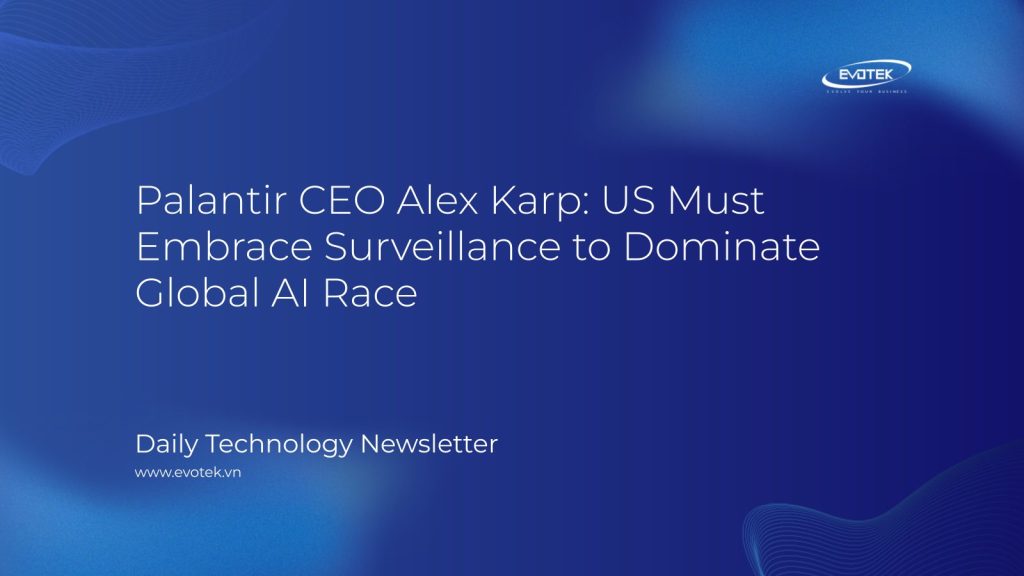Palantir CEO Alex Karp has once again stirred controversy with his unapologetic views on artificial intelligence, data privacy, and geopolitical competition. During recent public appearances, Karp argued that the United States should prioritize victory in the global AI race, even if it necessitates a more extensive surveillance state, rather than risk falling behind China.
Karp, who recently featured in Michael Steinberger’s book “The Philosopher in the Valley,” presented his company, Palantir, as an indispensable engine for American economic prosperity. When asked to define Palantir, he asserted, “We are growing the GDP of the US. We are the part of the GDP… of the AI economy where things are useful.” He has consistently linked significant US GDP growth to AI, presenting it as an undeniable force that everyone must embrace, seemingly dismissing concerns about speculative market bubbles or the long-term societal impact.
The tech executive’s rhetoric often swings between grand pronouncements of Palantir’s global significance and highly informal descriptions. He has hailed his company as “one of the greatest businesses in the world” performing a “noble task,” and more colloquially, “the most baller, interesting company on the planet” with a “baller product” and “baller culture.” This blend of high-stakes vision and casual self-promotion underscores his fervent belief in Palantir’s essential role, not just for business, but for national security and global standing.
At the heart of Karp’s philosophy lies a conviction in American exceptionalism. Referencing William Butler Yeats’s “The Second Coming,” he penned to investors: “Today, America is the center, and it must hold.” He further contended that it was a “mistake to casually proclaim the equality of all cultures and cultural values.” These statements position Karp less as a software executive and more as a geopolitical strategist, framing Palantir as critical to maintaining America’s leadership in an increasingly complex world.
When pressed on the potential downsides of artificial intelligence, Karp’s focus remained singularly on the rivalry with China. He did not delve into the internal risks, but rather framed the choice as binary: “It’s either going to go right and wrong for us or it’s going to go right and wrong for China.” For Karp, the risk of a domestic surveillance state, while acknowledged, is a secondary concern when weighed against the prospect of China dictating future global norms. He warned that if America loses its lead, “you will have far fewer rights.”
Curiously, Karp’s understanding of public concern regarding surveillance often veers into the idiosyncratic. He offered an example of a “god-given right” being threatened by surveillance: “my right to go have a hot dog with a coworker I’m flirting with while being married.” He later reiterated this point, suggesting surveillance technology isn’t primarily aimed at determining, “Am I shagging too many people on the side and lying to my partner?” This peculiar tangent raises questions about his grasp of broader data privacy and civil liberties anxieties.
Finally, when addressing the existential risk of AI, Karp identified “social instability” as the primary danger. He described this as “pretty crazy populist movements that obviously make no sense, like the government is going to run grocery stores.” This perspective seems to juxtapose an AI-driven, surveillance-heavy future as the stable alternative to community-led solutions for basic needs, such as addressing food deserts. For critics, Karp’s vision conveniently aligns with the path that maximizes profit for Palantir, making his “tough call” appear quite straightforward from his vantage point.

 日本語
日本語 한국어
한국어 Tiếng Việt
Tiếng Việt 简体中文
简体中文